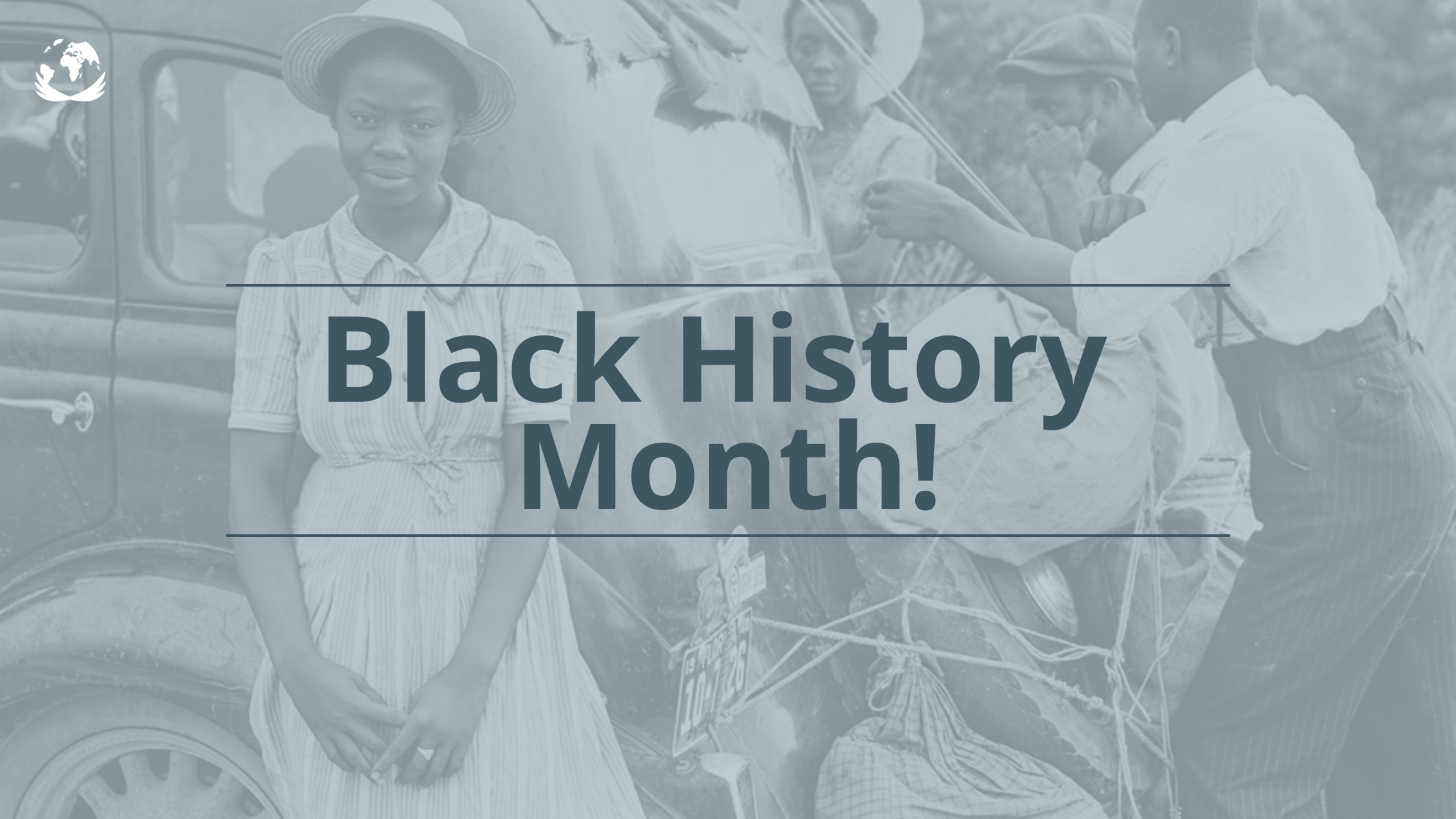We are celebrating Black History Month!
We are celebrating Black History Month!
Black history month is celebrated by recognizing and honoring the achievements of people of African descent.
You may wonder, why is Black History Month so important? And the answer to that is that Black History has been largely ignored. It’s as though Black History is a hole in our history. And if you remember back to your own time in school, you were likely taught American History, European History and very little about the rest of the world. And if you step back and think about that a bit more, you may realize that we have a lot of holes in our history. Because when you were taught American History, you were likely taught very little about the history of African-Americans, or women, Native Americans, Asian Americans, and other groups that may not have seemed important given the European focus of U.S. History.
So, let’s just play a game and imagine the map of the world - you know the kind where all the countries are different colors so you can easily see them separately. Now, imagine all the countries you know little about just disappearing from the map. How many are left? And now I ask you if those countries that you can still see are the only ones whose history is important? And by the same token, if you know nothing about African American history, or women’s history or Native American history, does that mean their history is not important?
And if you step back and think about that a bit more, you may realize that we have a lot of holes in our history. The history of the United States without the story of African Americans leaves a huge hole. Who picked the crops, built the buildings, cared for children, and achieved stunning breakthroughs in science, technology and the arts? And the threat of losing that economic power source caused us to engage in a 4 year long civil war and the scars from that conflict continue to separate us. The story of African Americans is the story of all Americans. There is no separation. Omitting it makes our history incomplete.
Here are 10 important facts to celebrate during Black History Month:
Black History Month has been celebrated since 1976 in the US
Black History Month is also celebrated in UK, Ireland, Canada and Germany
African history in North America is as long as White history in North America.
4. Africans were brought by the Spanish into St. Augustine, Florida in 1565.
5. The first Africans brought to English colonies in Virginia in 1619, only 12 years after the establishment of the Jamestown Colony, locking together Black and White building of America.
6. Three of the oldest universities in the world are in Africa:
- University of Timbuktu, Mali (982CE)
- University of Al-Karaouine, in Fes, Morocco (859AD)
- Al-Azhar University, Egypt (972AD)
7. Dr. Daniel Hale Williams, a cardiologist, performed the first successful open-heart surgery in 1893.
8. Garrett Morgan invented the Gas Mask in 1912, which saved countless lives in World War I.
9. The first African American Senator, Hiram Rhodes Revels, from Mississippi was seated in 1870.
10. Methods to preserve blood were invented by Dr. Charles Drew making his development of the blood bank, from 1938-1941, a huge breakthrough in modern medicine.
Dr. Drew’s comments below underscore the great value of celebrating the achievements of people around the world of African descent.
“. . . So much of our energy is spent in overcoming the constricting environment in which we live that little energy is left for creating new ideas or things. Whenever, however, one breaks out of this rather high-walled prison of the "Negro problem" by virtue of some worthwhile contribution, not only is he himself allowed more freedom, but part of the wall crumbles. And so it should be the aim of every student in science to knock down at least one or two bricks of that wall by virtue of his own accomplishment.”
Charles R. Drew to Mrs. J. F. Bates, a Fort Worth, Texas schoolteacher, January 27, 1947

